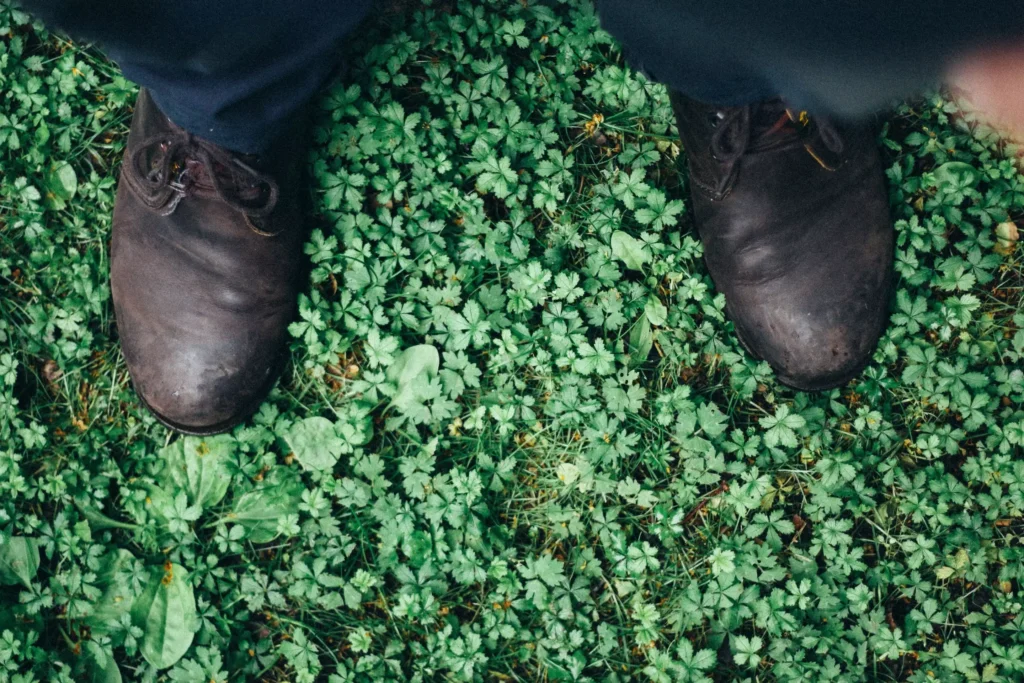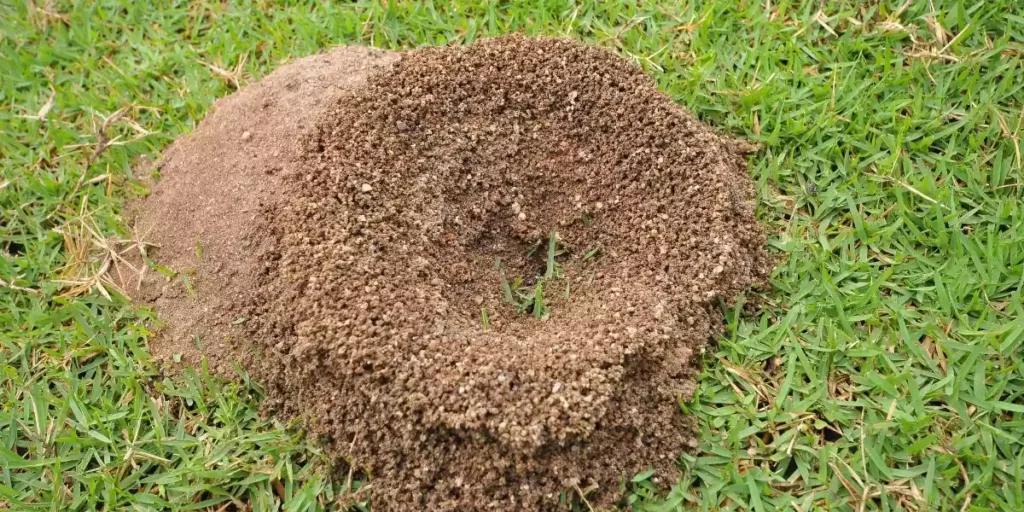As many people, so many different opinions. The usual advice is against adding bread to compost. But stale or moldy bread is organic just like any other kitchen waste. That’s why some may wonder if it’s really a good idea to put bread in the compost.
Bread, as well as any other type of grain products, can easily be composted. Bread decomposes quickly and also enriches the compost with a source of nitrogen. However, bread, like any other food scraps, can attract pests.
Whether you want to compost bread or not will depend mainly on your composting method or preferences. With the right approach, I see no reason why you should skip it. Bread can go into the compost just like any other food. However, some composting methods may be better suited to dealing with bread and other kitchen waste than others.
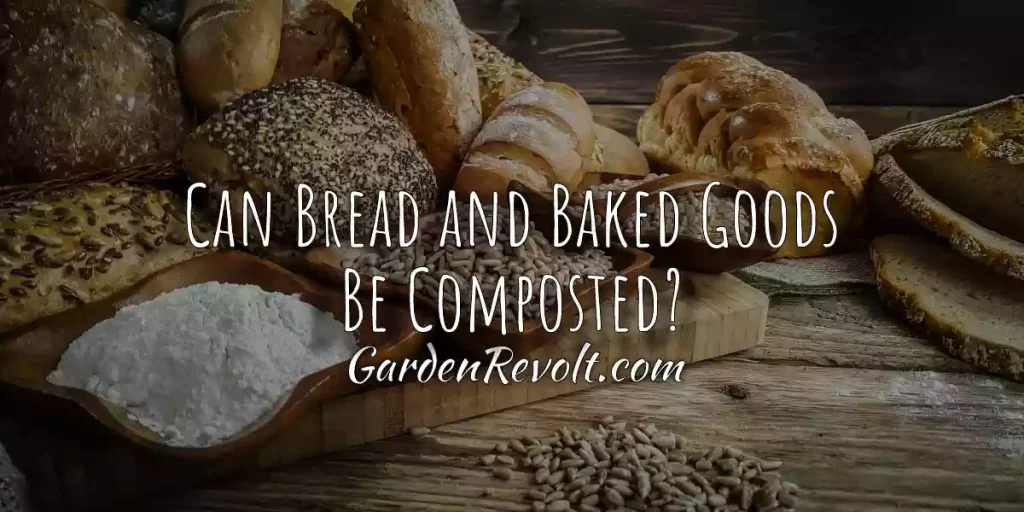
Is Bread Suitable for Compost?
There aren’t any major reasons why bread, baked goods and pasta shouldn’t be composted. The only reasoning behind that opinion comes down to attracting pests and rodents. I personally believe this shouldn’t be the reason not to throw bread scraps into our compost.
Bread and baked goods are suitable for compost and we should not waste such a valuable source of organic matter. It is definitely more beneficial to use old or moldy bread for nutritious compost for the garden or for house plants.
So if you’re like me and prefer to take advantage of the nutritional value of bread, I’ll give you some pros and cons about composting bread. And I’ll also toss in some ideas on how you can minimize the appearance of unwanted guests in your pile.
Read also: How to Make Compost from Kitchen Scraps? (Valuable Tips and Advice)
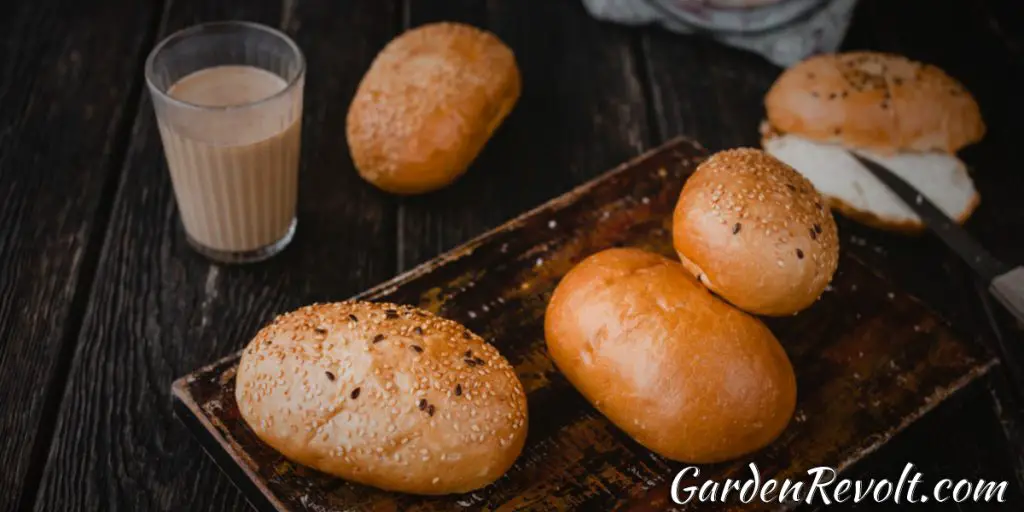
Why compost bread and other baked goods?
To put it simply, bread is organic matter, and as such can be confidently put into compost. So if you regularly throw away excess bread, it’s better to allocate it to compost.
Unlike other food waste, such as dairy or oils, bread will neither upset the balance nor slow down the composting process.
As a component of compost, bread decomposes incredibly quickly. As soon as you expose it to moisture, it will quickly break down, especially if it’s in smaller pieces.
How to Compost Bread Most Effectively?
- Shred it. By shredding your bread into smaller pieces, you’ll make it decompose faster. Plus, pests will be less likely to sniff it out.
- Put the bread scraps in the center of the compost. The center of the compost generates the most heat, which causes faster decomposition.
- When throwing bread into the pile, cover it with brown materials. Things with a high carbon content, like sawdust or dry leaves, will be an excellent choice. Balancing the mix of carbon and nitrogen in the compost promotes a more efficient decomposition process.
- Add an activator. You can add some manure, finished compost or garden soil on top of the bread. This will make the bread decompose even faster.
- Or simply cover the tossed bread with whatever compost is already available. This is the easiest and quickest way to hide it from potential pests.
Can you compost grain products?
Along with questions about bread, there is a question about bread-like products – that is, anything cereal. Many people want to know if it is safe to compost leftover yeast, kneaded dough, dumplings, pasta and the like. To answer this question, just like bread and baked goods, many other starchy products and baked goods can be safely thrown into the compost.
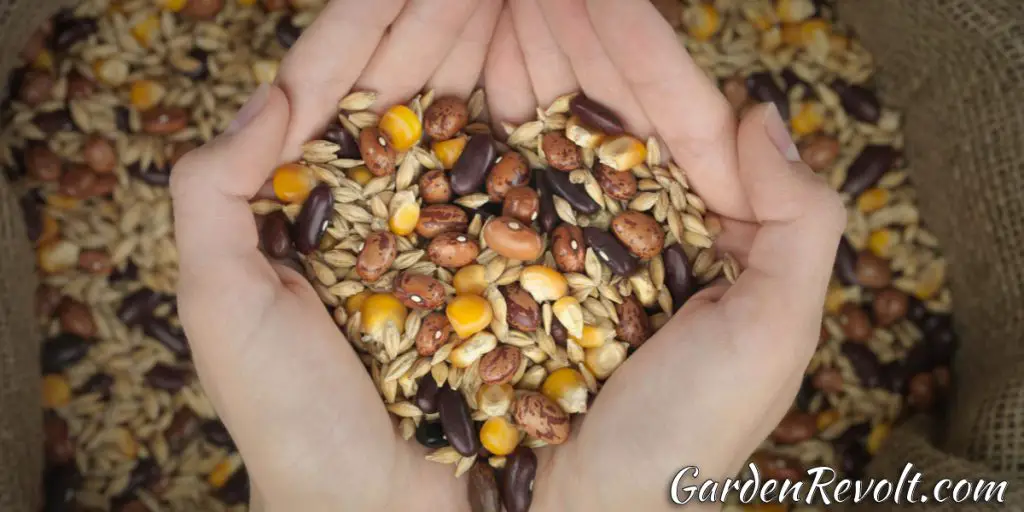
And is there a reason not to compost bread after all?
As I already mentioned, bread used in compost can attract animal pests. This is the main reason to avoid adding bread.
While bread can lure unwanted visitors to your compost, there are, of course, ways to prevent these pests. With a little thought and preparation, composting bread doesn’t have to be a source of nerves.
Composting in a closed bin or in a box with a lid will help keep pests from finding tasty food scraps. Even with an open composter, making sure all pieces of bread are covered with grass or other materials will negate the appearance of pests.
Is Dry Bread Suitable for Compost?
Of course dry bread is suitable for compost. Bread has the property that it absorbs moisture very quickly. Therefore, any kind of bread and any other bread will be absorbed very well.
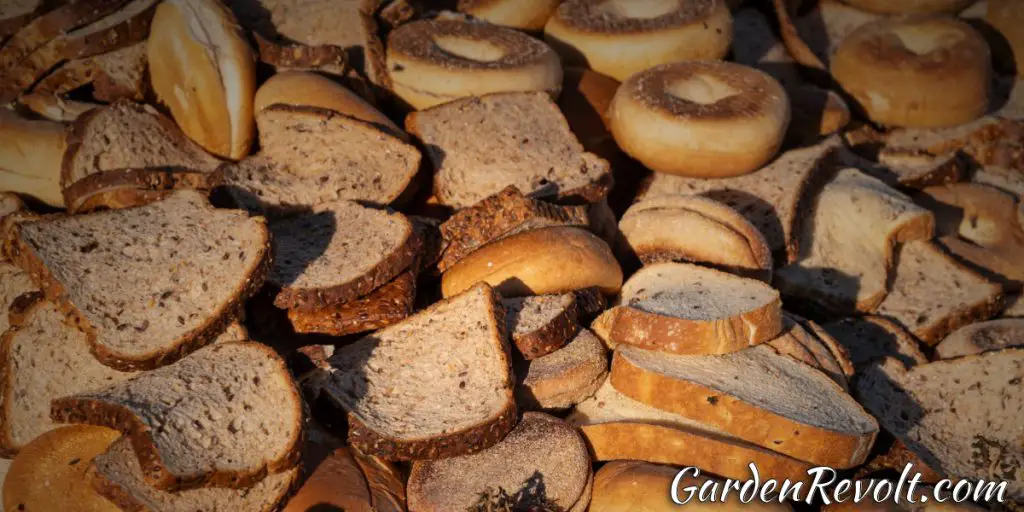
Is moldy bread suitable for compost?
Moldy bread is also great for compost. It is even better for composting than fresh or dried bread. And the fact that it has mold on it means that it has already started the decomposition process. For us it is harmful, but for composting it will be suitable like a glove. Adding moldy bread to compost is just helping nature.
Regardless of the type of bread, it is great for the microorganisms in the compost. Mold on bread is a natural phenomenon and there is nothing strange about it. Whether the bread is thrown in dry or molded final does not matter. Bacteria and other microorganisms will deal with it very well. At the end of the day, the bread would start to go moldy after lying in the compost for some time anyway.
This will interest you: What’s Suitable for Compost? (Extensive List of Products!)
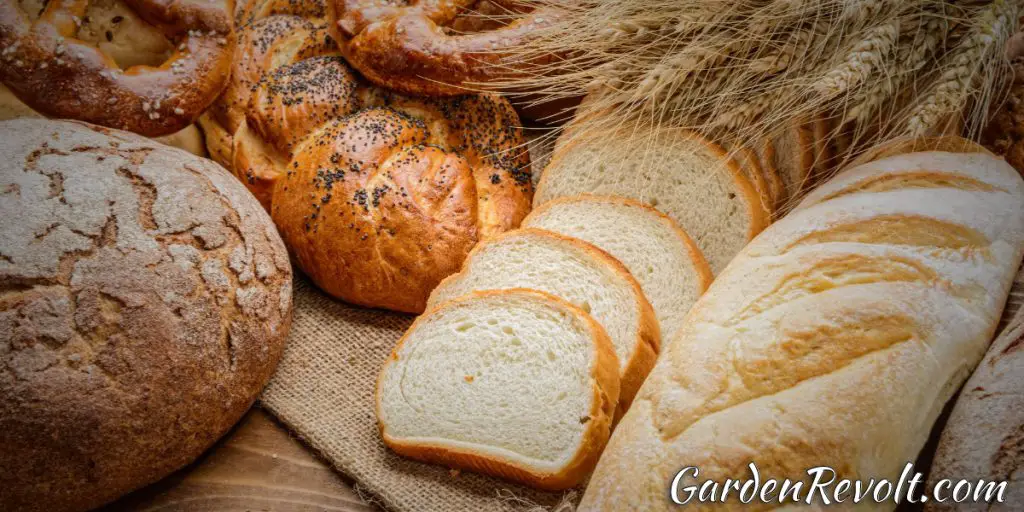
How to Store Bread for Compost?
You’re not going to run to the compost pile every time you have some bread left over, are you? I deal with leftover bread the same way I deal with other kitchen waste. First of all, it’s a good idea to grind the bread into smaller pieces. This will make it easier to store it until you go for compost, but it will also help the decomposition process once it goes to the right place.
If you compost in a special container in your apartment, this won’t be a problem, but if you have a composter a piece farther behind the house – there is a way to do it.
You can store food leftovers in a plastic bucket with a lid. Necessarily with a lid! You’d be surprised how quickly a container of food scraps can become stinky….
A lid also prevents insects from getting inside. Flies and fruit flies can very quickly take advantage of your inattention and make quite a feast for themselves. Often increasing their numbers, exposing household members to a real plague….
Some people, next to such a bucket for leftovers, keep a second container with sawdust after cutting wood or even with finished compost. Every time you throw something in – sprinkle it with a bit of sawdust/compost. This is a very cool way to negate bad smells. In addition, food scraps will start to compost a little earlier because they will come into contact with the brown material earlier. And when the time comes – transport everything to where they belong – the compost pile.
Here’s an alternative: If you have clean and dry bread left and there are no signs of mold on it, you might as well put it in a bowl, put it on a shelf in the pantry and grate it after some time. I do breadcrumbs this way.
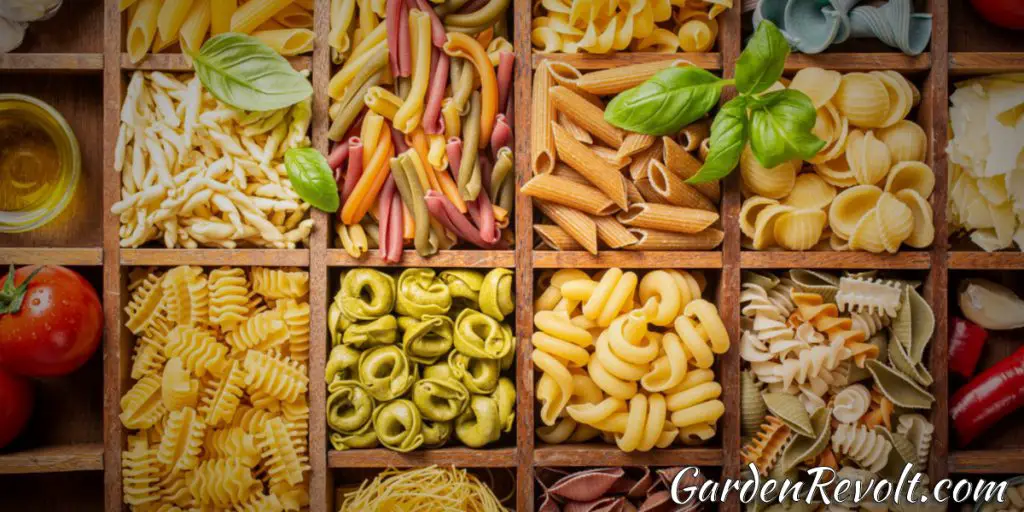
Is it possible to compost pasta?
You can compost pasta of any kind. However, it is recommended that it be plain, cooked pasta. If it has been cooked with any added fats or sauce, you should consider whether it is definitely worth adding. Otherwise, you risk that the decomposition processes in the compost will suffer from excess fat.
Can rice be composted?
Rice can be composted both cooked and uncooked. However, composting rice can be riskier than it sounds. Rice tends to attract various insects and animals.
As for cooked rice, it is usually organic and compostable. Because of the potential imbalance of the compost and attraction of pests, cooked rice with added oils or sauces should not be added to the compost pile.
Uncooked rice could take even up to three months, because it lacks moisture. In some cases, it could take longer than 3 months. It depends mostly on the conditions inside your composting pile.
Can raw yeast dough be composted?
Raw dough, specifically yeast, is an acceptable material for composting. Since yeast is a fungus, it provides natural sugars to any compost pile that contains starchy compounds. So, if you’ve baked bread but have leftover yeast, go ahead and throw it into your compost pile. Both dried and fresh yeast are harmless elements that you can add to your compost pile.

